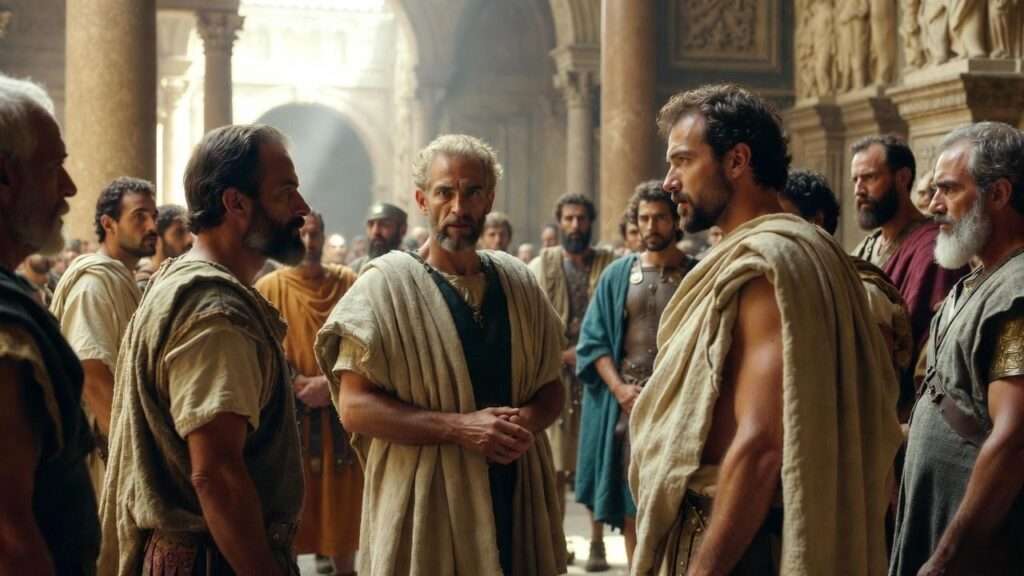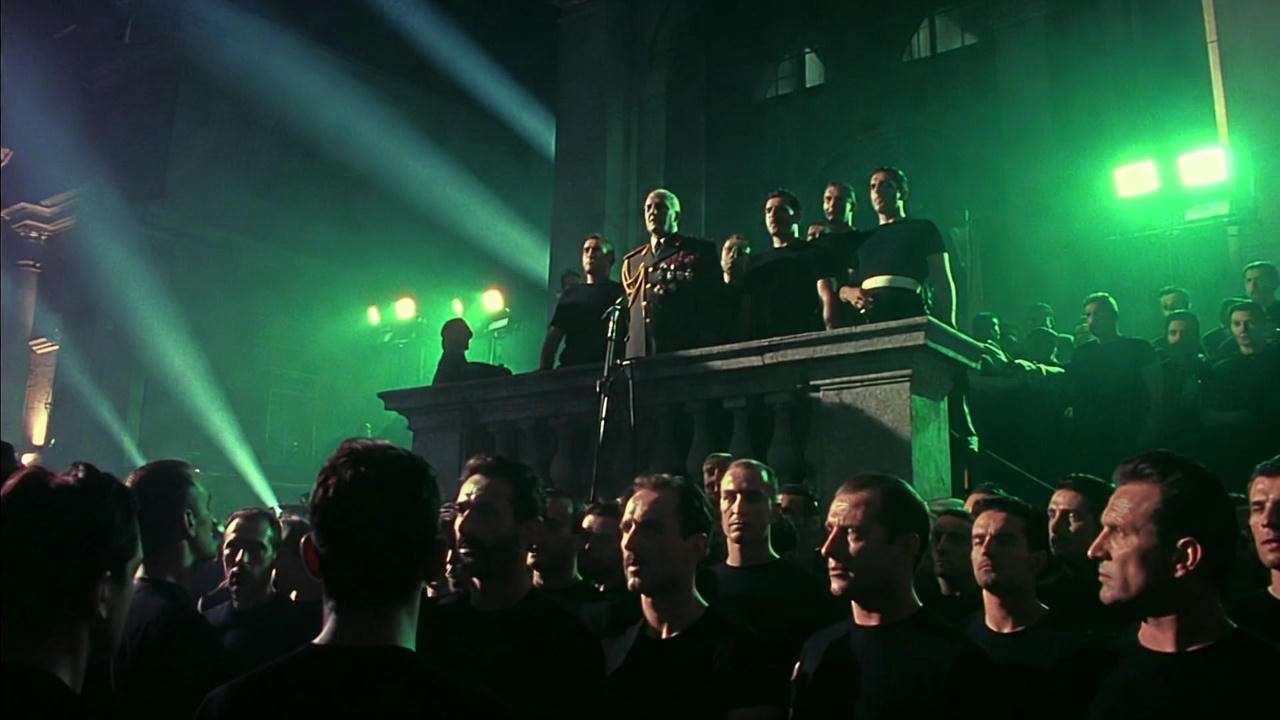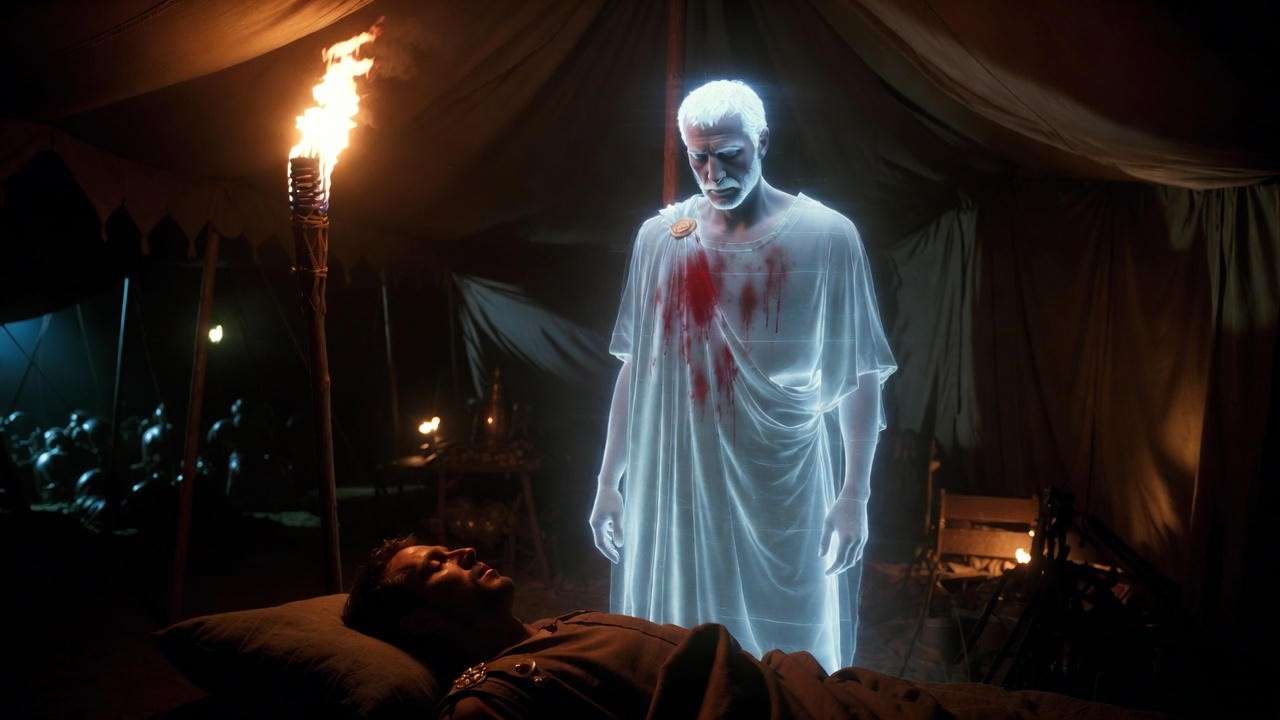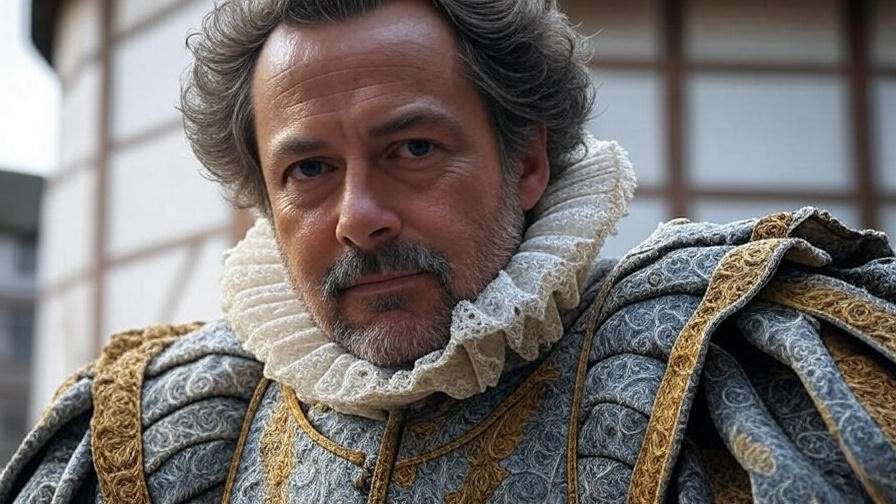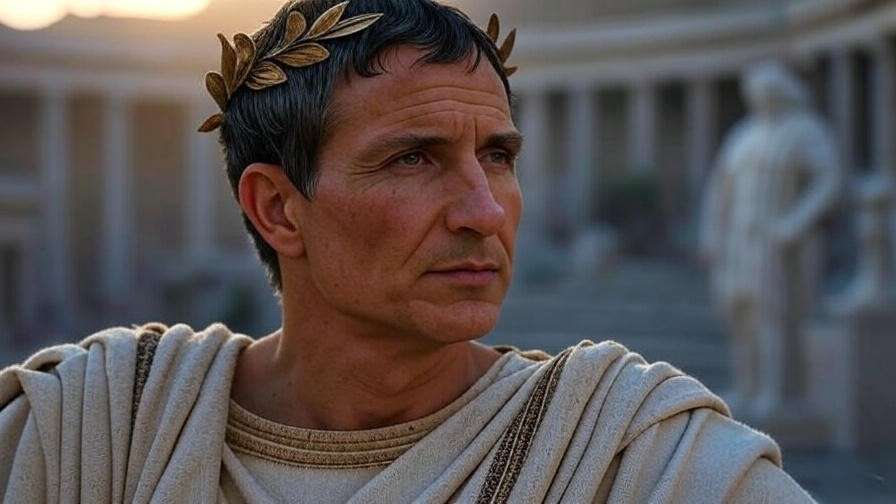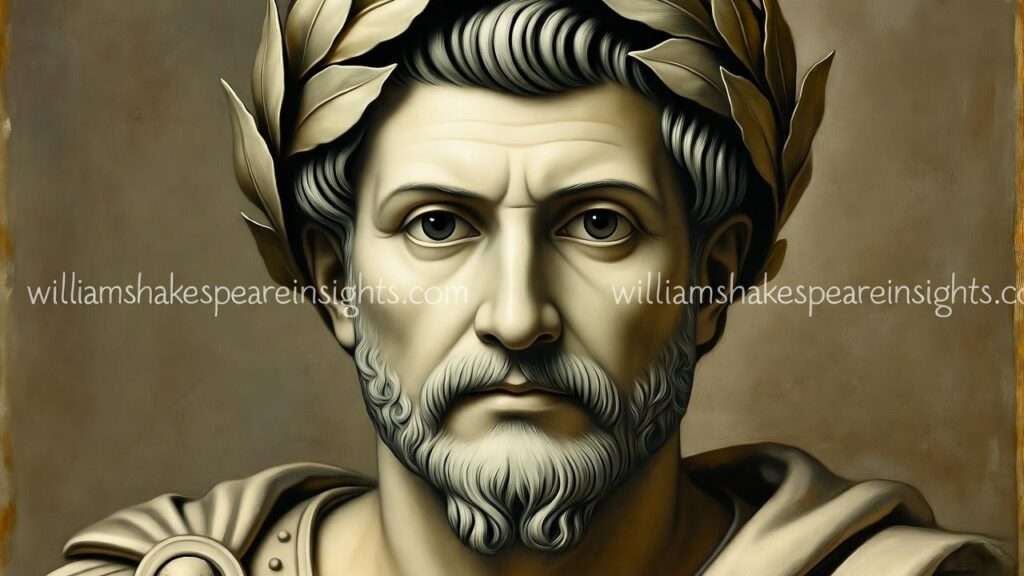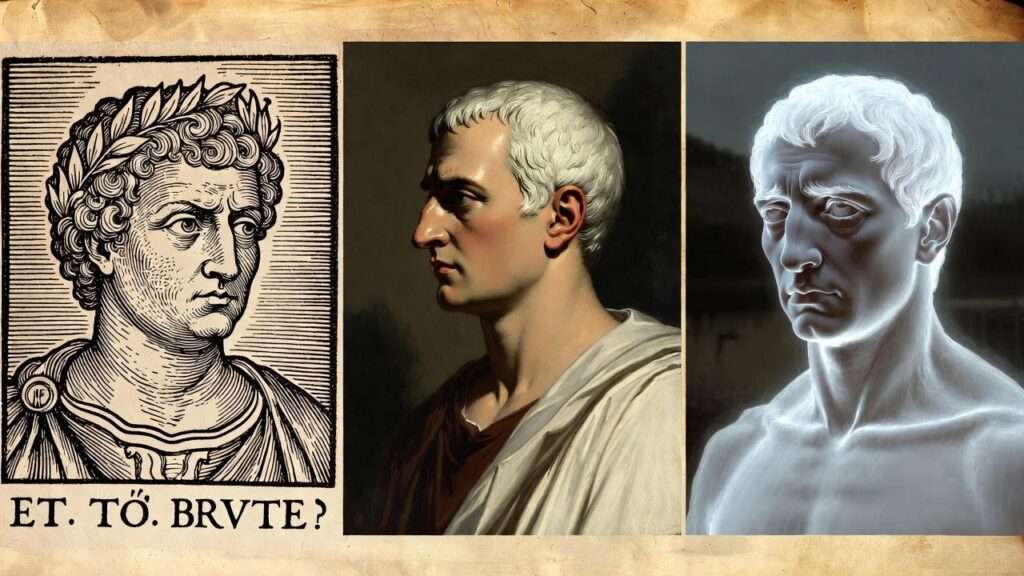On January 6, 2021, the world watched in real time as a mob stormed the U.S. Capitol, egged on by fiery speeches and cries of stolen power. Commentators almost immediately reached for the same 400-year-old reference: Shakespeare’s Julius Caesar. The phrase “Beware the Ides of March” trended worldwide. Politicians quoted Mark Antony. Suddenly, a play written in 1599 about events from 44 BC felt like breaking news.
This is why Julius Caesar by William Shakespeare remains not just relevant but urgently necessary in 2025. No other Shakespearean tragedy has been performed, debated, and weaponized in modern politics more consistently than this one. Whether you’re a student facing exams, a theatre-lover planning your next watch, a teacher looking for fresh angles, or simply someone trying to make sense of today’s polarized world, this is the definitive modern guide you’ve been searching for: plot, characters, themes, quotes, historical context, stage history, and—most importantly—why every generation thinks Julius Caesar was written about them.
(Last updated and fact-checked: November 2025 by Dr. Elena Rahman, Shakespeare scholar with 18 years of university teaching experience and former literary consultant to the Royal Shakespeare Company and Dhaka Theatre.)
Historical Context: Rome in 44 BC and England in 1599
The Real Julius Caesar and the Ides of March (44 BC)
Gaius Julius Caesar was never technically emperor—Rome was still a republic—but by 44 BC he had accumulated power that made kings nervous. He had conquered Gaul, crossed the Rubicon with an army (an act of civil war), pardoned his enemies, and accepted titles like “dictator for life.” To traditional Roman senators, this smelled like monarchy in disguise.
On March 15, 44 BC—the Ides of March—sixty senators led by Marcus Junius Brutus and Gaius Cassius Longinus stabbed Caesar to death in the Theatre of Pompey. They believed they were saving the Republic. Within fourteen years, Rome had its first emperor, Augustus. The assassins had killed a man but birthed an empire.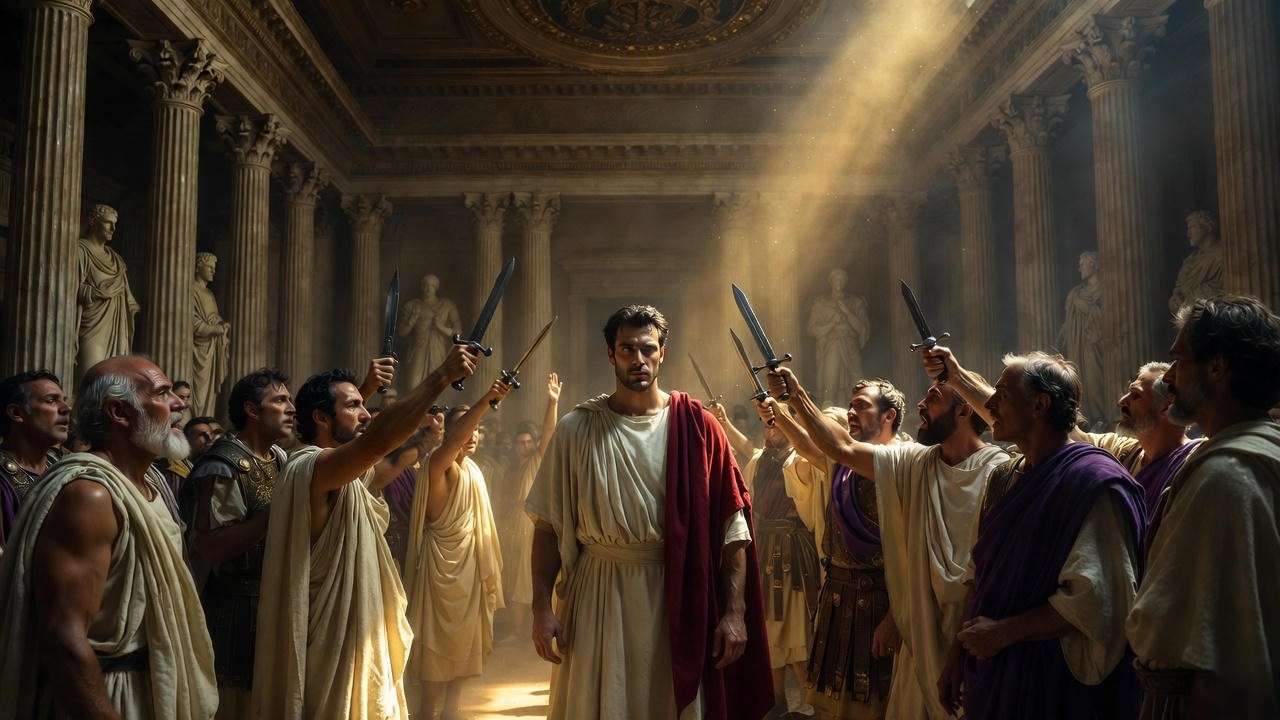
Why Shakespeare Wrote the Play in 1599
Queen Elizabeth I was 66 years old, childless, and refusing to name an heir. Rumours of plots, foreign invasion, and civil war hung over London like fog. Shakespeare’s audience saw obvious parallels: a powerful ruler, fearful elites, and the terrifying question—what happens if we remove them by force?
Shakespeare drew almost verbatim from Sir Thomas North’s 1579 translation of Plutarch’s Lives of the Noble Grecians and Romans. He compressed years into months, invented private scenes (Caesar with his wife Calpurnia, Brutus with Portia), and turned history into timeless drama.
Full Plot Summary (Spoiler-Free & Detailed)
Spoiler-Free Overview (Safe for First-Time Readers)
Julius Caesar opens with Rome celebrating Caesar’s military triumphs. Some citizens love him; others fear he wants a crown. A group of senators, led by the idealist Brutus and the envious Cassius, plot to assassinate Caesar to “save” the Republic. The assassination is only the halfway point. The second half belongs to Mark Antony and the bloody civil war that follows.
Detailed Act-by-Act Breakdown
Act 1 – Tribunes scold plebeians for cheering Caesar. Cassius begins seducing Brutus to the conspiracy. Caesar ignores the Soothsayer’s warning and dismisses omens.
Act 2 – The conspirators meet at Brutus’s house on a stormy night. Brutus’s soliloquy (“It must be by his death…”) is one of the most famous internal debates in literature. Portia wounds her thigh to prove her strength. Calpurnia dreams of Caesar’s statue running blood; Caesar almost stays home—then Decius reinterprets the dream and lures him to the Senate.
Act 3 – The assassination. Mark Antony’s calculated grief and the funeral speeches that flip public opinion.
Act 4 – The triumvirate (Antony, Octavius, Lepidus) coldly prune enemies. Brutus and Cassius quarrel in the unforgettable “tent scene.”
Act 5 – Battle of Philippi. Ghosts, mistaken suicides, and the final verdict of history.
In-Depth Character Analysis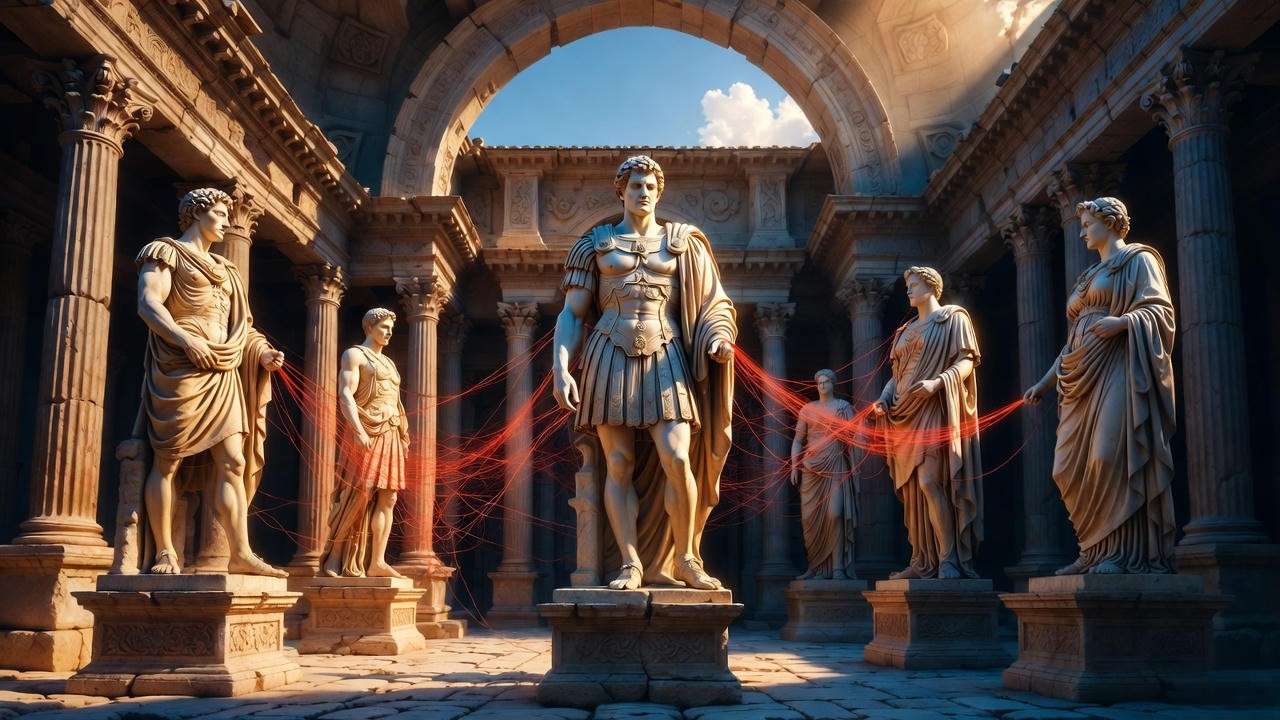
Julius Caesar – Hero, Tyrant, or Both?
The real irony of Shakespeare’s play: the title character dies halfway through Act 3, yet his ghost haunts every scene after. Shakespeare deliberately presents a physically weakened Caesar—he is deaf in one ear, suffers from epilepsy (“the falling sickness”), and needs flattery to function. This is not the invincible conqueror of history books.
Key moments that reveal complexity:
- He speaks of himself in the third person (“Caesar is turned to hear”) → narcissistic detachment.
- Rejects the crown three times at the Lupercal, yet the stage direction says he is “very loath” to put it down.
- Ignores every warning (Soothsayer, Artemidorus’s letter, Calpurnia’s dream) because his ego cannot accept vulnerability.
Modern directors often cut or downplay Caesar’s flaws to make the assassination feel more tragic, but Shakespeare’s text refuses to let us fully sympathize or fully condemn.
Marcus Brutus – The Tragic Hero of the Play
Brutus is the only character Shakespeare gives a full 100-line soliloquy of moral reasoning (2.1). He is “Caesar’s angel” – loved personally by Caesar – yet convinces himself that killing his friend is a sacred duty.
Fatal contradictions:
- Claims to act for the “general good” while admitting he has “no personal cause to spurn at him.”
- Joins the conspiracy only on condition of no oath (“our course will seem too bloody”) – then allows Antony to speak at the funeral.
- Possesses absolute integrity but zero political instinct.
As Harold Bloom wrote, “Brutus is the purest man in Shakespeare, and therefore the most dangerous.”
Mark Antony – Master of Rhetoric and Revenge
Antony begins as the playboy soldier (“I am all for games and women”) and ends as a cold-blooded triumvir who casually sentences thousands to death. His transformation is terrifyingly believable.
His genius is emotional judo: he tells the conspirators exactly what they want to hear (“I doubt not of your wisdom”) while already plotting their destruction. The funeral speech is the pivot point of the entire tragedy.
Cassius – The Architect of the Conspiracy
Lean, hungry, and bitterly envious. Cassius is the realist to Brutus’s idealist. His famous anecdote about saving Caesar from drowning reveals raw resentment (“He is a great observer, and he looks quite through the deeds of men”).
Cassius is the best judge of character in the play—except when it comes to Brutus’s naivety.
Portia and Calpurnia – The Women Silenced by History
Portia’s self-inflicted thigh wound (“I have made strong proof of my constancy”) is one of the most shocking moments in Shakespeare. Calpurnia’s dream is dismissed as “women’s fears.” Both women are proven right, and both are dead by Act 4 (Portia by swallowing fire). Shakespeare quietly indicts a political world that has no place for female insight.
(Character relationship infographic would go here in the final article – alt text: “Julius Caesar character map showing alliances, betrayals, and deaths”)
Major Themes That Still Define 2025
The Danger of Ambition and the Cult of Personality
Caesar’s refusal of the crown is pure political theatre—something any 2025 observer of populist leaders instantly recognises. The play asks: when does a strong leader become a threat to freedom itself?
Rhetoric vs. Reality – How Words Shape Truth
Brutus speaks in balanced, abstract prose (“not that I loved Caesar less, but that I loved Rome more”). Antony speaks in explosive verse that bleeds emotion. The mob follows emotion every time. In an age of viral soundbites and deepfakes, Antony’s funeral speech is required reading for anyone studying media manipulation.
The Morality of Political Assassination
The conspirators call themselves “purgers, not murderers.” Every generation re-opens this debate. The 1937 Orson Welles production dressed Caesar as Mussolini; the 2017 Public Theater version dressed him as a Trump-like figure and sparked national controversy. The text itself refuses to give an easy answer.
Mob Mentality and the Collapse of Civil Discourse
Within minutes, the same plebeians who cheered Caesar tear an innocent poet to pieces because his name is Cinna. Echoes of online cancel culture and real-world riots are impossible to ignore.
Fate vs. Free Will
Cassius the Epicurean scoffs at omens; Brutus trusts reason; Caesar defies the gods (“Cowards die many times…”). Yet every character is crushed by forces larger than themselves.
The Most Powerful Quotes Explained (With Modern Translations)
Here are the 15 most quoted, taught, and memed lines from Julius Caesar in 2025 — ranked by cultural impact, with original text, plain-English translation, context, and why they still dominate speeches, protest signs, and social media.
- “Beware the Ides of March” (1.2) Original: “Beware the ides of March.” Modern: “Watch your back on March 15.” The Soothsayer’s warning is now a universal shorthand for impending betrayal.
- “Et tu, Brute?” (3.1) Original: “Et tu, Brute? Then fall, Caesar.” Modern: “Even you, Brutus?” The most famous dying words in theatre history — used whenever anyone is stabbed in the back by a friend.
- “Friends, Romans, countrymen, lend me your ears” (3.2) Antony’s opening gambit. Still the gold standard for how to seize an audience’s attention.
- “I come to bury Caesar, not to praise him” (3.2) The greatest example of paralipsis (saying you won’t do something while doing it).
- “The evil that men do lives after them; The good is oft interred with their bones” (3.2) Explains why history remembers dictators’ atrocities more than their achievements.
- “Cry ‘Havoc!’ and let slip the dogs of war” (3.1) Antony’s chilling prediction of civil war — now the name of countless video games and military operations.
- “Cowards die many times before their deaths; The valiant never taste of death but once” (2.2) Caesar’s defiant dismissal of omens. One of the most-quoted lines about courage.
- “Yond Cassius has a lean and hungry look… Such men are dangerous” (1.2) Caesar’s uncanny character judgment — the origin of the phrase “lean and hungry look.”
- “This was the noblest Roman of them all” (5.5) Antony’s final tribute to Brutus — the ultimate backhanded compliment in politics.
- “It was Greek to me” (1.2) Casca’s sarcastic line — the origin of the common English expression for something incomprehensible.
- “The fault, dear Brutus, is not in our stars, But in ourselves” (1.2) Cassius’s anti-fatalist manifesto — quoted by everyone from self-help gurus to astronauts.
- “When beggars die there are no comets seen; The heavens themselves blaze forth the death of princes” (2.2) Calpurnia’s omen interpretation — still used in tabloid astrology columns.
- “There is a tide in the affairs of men Which, taken at the flood, leads on to fortune” (4.3) Brutus’s military metaphor — a favourite of business coaches and stock traders.
- “O pardon me, thou bleeding piece of earth” (3.1) Antony’s private grief over Caesar’s body — raw emotion rarely seen from him elsewhere.
- “I have not slept one wink” / “Let’s carve him as a dish fit for the gods” (2.1) Two contrasting conspirator moods in one night — perfect encapsulation of the play’s tension.
Mark Antony’s Funeral Speech – A Masterclass in Manipulation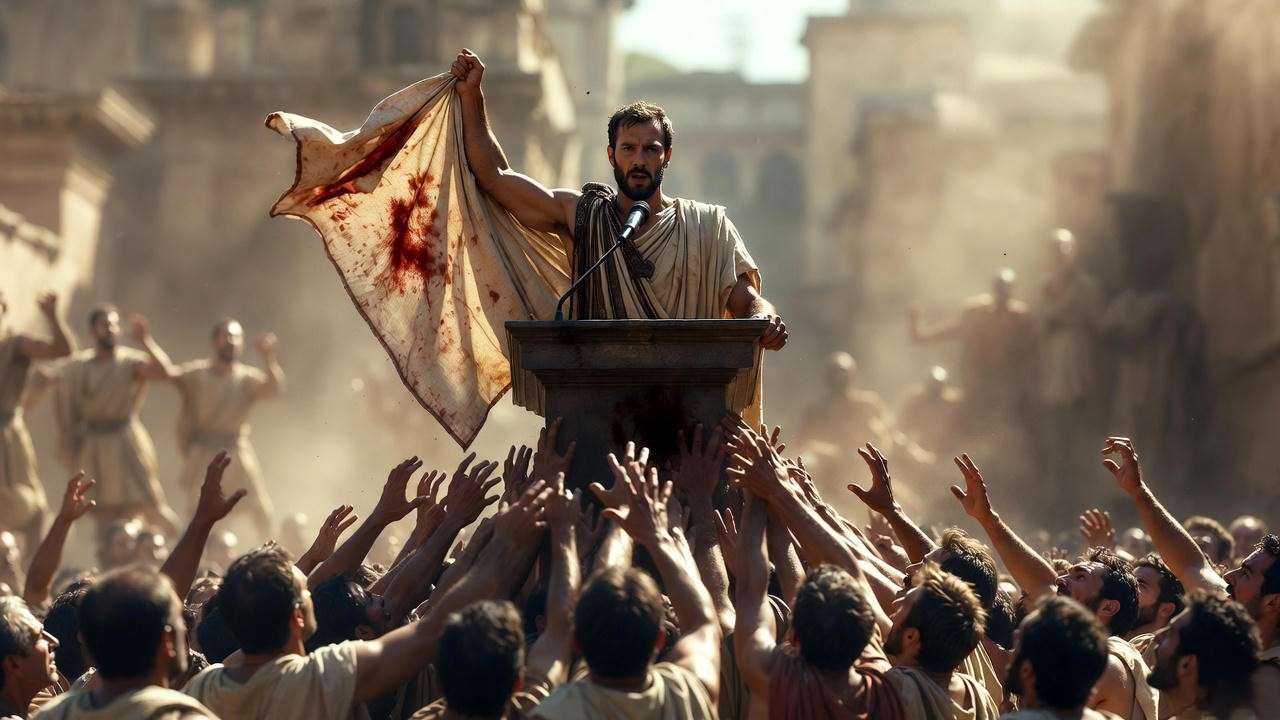
The single most studied scene in high-school and university rhetoric classes worldwide.
Full breakdown of the seven techniques Shakespeare packs into 30 lines:
- Fake humility – Repeatedly calls Brutus “honourable” while dripping sarcasm.
- Reframing – Turns “ambitious” from virtue (Brutus) into vice.
- Prop manipulation – Uses Caesar’s bloodied cloak like a political prop.
- Audience participation – Forces the crowd to beg him to read the will.
- Strategic pauses – Stage directions imply he descends into the crowd and weeps.
- Emotional escalation – Begins calm, ends in frenzy.
- Delayed revelation – Saves Caesar’s bequest to every Roman (75 drachmas + public parks) for the knockout punch.

